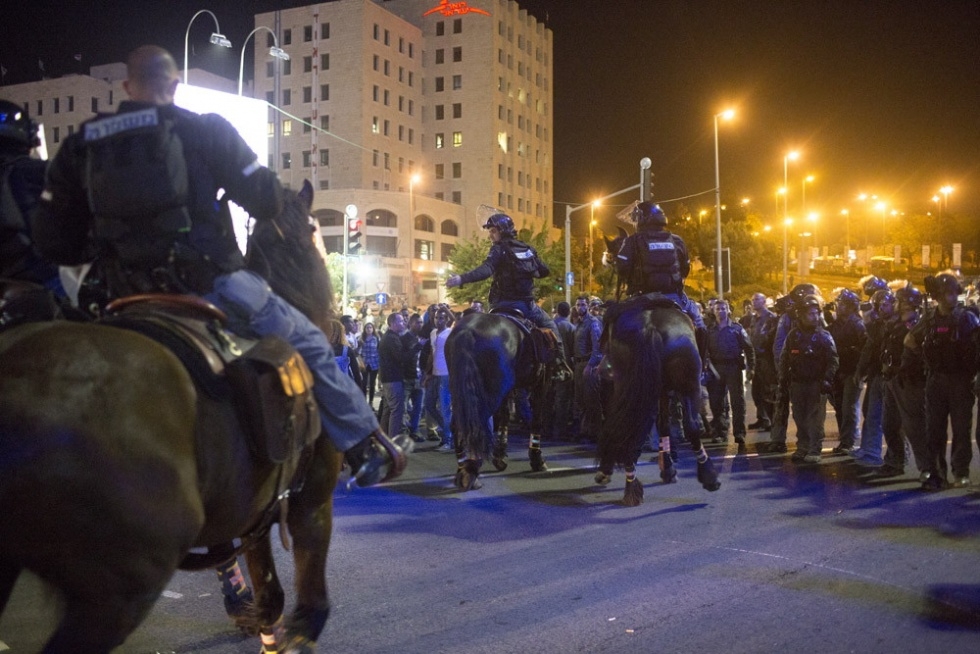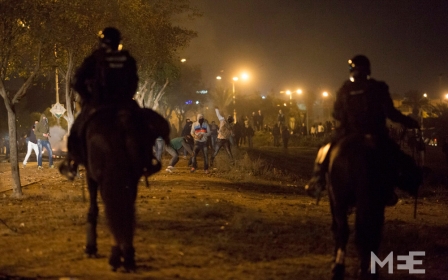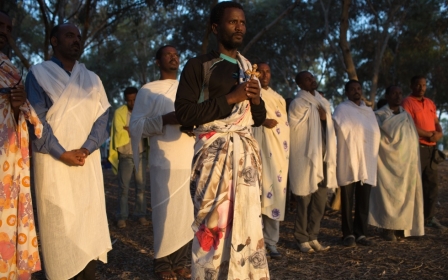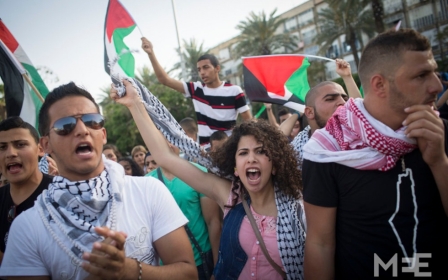Ethiopian-Israeli protesters clash with police in Jerusalem

More than 2,000 Ethiopian Israelis protested against alleged police violence and racism on Thursday in Jerusalem, blocking roads and clashing with Israeli police.
“I am protesting today because of the discrimination that is growing up inside Israeli society against the Ethiopian community, and also because of the way they attacked the Ethiopian solder,” protester Dego Takali told Middle East Eye.
“If this solder was white, the whole country would stand on one leg and would make a big issue about it, the government and the army will stand against it, but since he is Jewish Ethiopian then no one even made a statement against that,” Takali said.
In a statement, Netanyahu called for calm and pledged to take action against those shown in the footage.
"I strongly condemn the beating of the Ethiopian IDF [Israeli army] soldier and those responsible will be held accountable. However, no one is allowed to take the law into their own hands," he said.
Jerusalem police chief Chico Edri said the police were aware of the "stormy emotions" gripping the Ethiopian community but called for everyone to act "with restraint".
Earlier this week, Israel's national police chief Yohanan Danino pledged a crackdown following the emergence of the footage, saying that police "would not tolerate such unacceptable behaviour".
He also pledged to set up a teams to investigate the community's grievances.
President Reuven Rivlin also called for an investigation.
"We cannot sit back in the face of anger and shouting - incidents such as these must serve as a warning sign, and an opportunity to conduct some genuine and thorough introspection," he said in a statement.
More than 120,000 Ethiopian Jews live in Israel, having immigrated their in two waves in 1984 and 1991. But they have struggled to integrate into Israeli society, despite serving in the army and receiving massive government aid.
Middle East Eye propose une couverture et une analyse indépendantes et incomparables du Moyen-Orient, de l’Afrique du Nord et d’autres régions du monde. Pour en savoir plus sur la reprise de ce contenu et les frais qui s’appliquent, veuillez remplir ce formulaire [en anglais]. Pour en savoir plus sur MEE, cliquez ici [en anglais].




